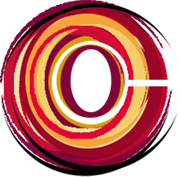‘Glocal Educator’ rundes af

[vc_row][vc_column width=”1/2″][vc_column_text]I december 2013 satte australieren Adam Usher sig på fly til Danmark. I kufferten havde han store drømme om, hvordan man kunne udvikle de danske gymnasieskoler; i rygsækken havde han mange års erfaring som både underviser og forsker inden for uddannelse. I dag, to et halvt år senere, er drømmene omsat til virkelige oplevelser og rygsækken endnu tungere af de erfaringer, han har gjort sig gennem arbejdet med Globale Gymnasiers netop afsluttede aktionsforskningsprojekt Glocal Educator.
Vi har bedt Adam om at kaste et blik tilbage på de forgangne år her fra målstregen:
So Adam, can you just give us a short sum up, what was Glocal Educators all about?
The Glocal Educators Project has been about providing research and development support to teachers with the aim of creating more deliberate and sustainable professional learning and teaching practices for 21C global citizenship. Put simply, the project was designed to further develop teachers and students as conscious 21C global citizens by supporting them to focus on themselves as learners as well as practitioners.
Key to the approach was for teachers and students to use a learning profiling instrument (ELLI) to understand themselves first as learners and citizens, as a way of enabling them to then reflect and develop their classroom practice.
A 21C active citizen is one who is an active learner; critically curious, seeking to make sense from what is occurring around them, wanting to collaborate and share understandings with those around them.
Now standing at the finishing line, what do you see as the greatest learnings for both you and the involved teachers and students, which have occurred during this project?
For me the greatest aspect has been to see how powerful change is when all of the elements of the goal are visible. Once the learning attitudes and dispositions needed for global citizenship were made clear teachers and students alike took the power and began enacting them.
Both our quantitative and qualitative data clearly identified how making learning visible increased people’s understanding of themselves as learners. For the development of an identity as an active citizen, this has been critical.
Impact of the project was seen across all participants but it was clear that those who took active steps to integrate the learning language into their practice / classroom were the ones who had the strongest development as conscious learners. Those who were able to take a ‘leap of faith’ as learners were rewarded with tangible results as teachers or students.
Not surprisingly but no less powerful was the student voice. Students were able to articulate very astute judgements of their learning context when given the opportunity and the language with which to express it. Students across all schools recognized and appreciated those teachers who took on a learning identity and as having adapted their practice in a positive way. I remember so clearly what one student said, “We feel it when a teacher wants to learn. When they do, we do too”. This indicated real impact for me.
And what comes next?
I think the continual challenge for educators, schools and whole communities is to continue the deliberate search for new and bespoke methods and forms of evidence that demonstrates inclusive learning and collaboration. We never reach a finish line with this challenge.
The continual nature of this challenge was emphasized in interviews with students and teachers. Students felt that despite positive impact having been made in some of their classes, they feel that they had yet to achieve a ‘tipping point’; that they are not yet able to act as ‘active citizens’ in a majority of their classes. Teachers too, said that they were able to see more clearly what teaching for effective learning looked like, however, systemic realities and structures acted as hurdles still to be cleared.
School communities largely still mirror national communities with a narrow concentration on fixed knowledge, and static understandings of citizenship as rights and responsibilities. The challenge is to create in classrooms and in staffrooms communities that enact fluid forms enquiry, collaboration and sense making of the type that is desired on a global community level; that is to ‘be’ the change that is desired.
[/vc_column_text][/vc_column][vc_column width=”1/2″][vc_single_image image=”2244″ alignment=”center” border_color=”grey” img_link_target=”_self” img_size=”full”][vc_column_text]Om Glocal Educators
Omkring 200 elever og 60 lærere fra syv af netværkets skoler har været involveret i Glocal Educators.
I løbet af skoleåret 2013-2014 og 2014-2015 udførte alle elever og lærere tre gange en selvevaluering, de såkaldte ELLI-dimensioner. I tiden mellem evalueringerne fokuserede lærerne deres undervisning på at udvikle specifikke dimensioner i ELLI hos både eleverne og sig selv. Tre af skolerne fortsætter arbejdet med den nyeste version af læringsdimensionerne, CLARA, næste skoleår.
Resultaterne fra aktionsforskningsprojektet forventes klar til september.[/vc_column_text][/vc_column][/vc_row]
